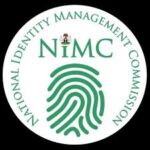ECOWAS for the People, ECOWAS for the Future: Unlocking Regional Integration for a Prosperous West Africa.
By Raymond Enoch
West Africa stands at a crossroads. With a population exceeding 400 million and abundant natural and human resources, the region holds the potential to emerge as a global economic force.
However, persistent challenges such as insecurity, political instability, and economic disparity continue to hinder progress.
Now more than ever, the Economic Community of West African States (ECOWAS) must adopt a transformative regional integration agenda—one that prioritizes people-centered development and fosters a prosperous and unified future.

For decades, ECOWAS has played a pivotal role in regional diplomacy, peacekeeping, and economic cooperation. Its contributions have been evident in Nigeria, Cape Verde, and in countries like Liberia and Sierra Leone during their civil wars. However, many West Africans view ECOWAS as an elite-driven institution detached from the everyday realities of its citizens. This awareness need to be stepped up to truly transform into realities of the ECOWAS of the people.
To shift this perception, ECOWAS must evolve from a bureaucratic entity into an institution that delivers tangible benefits. A fully integrated regional market, through the ECOWAS Trade Liberalization Scheme (ETLS) and the removal of non-tariff barriers, can unlock prosperity by enhancing cross-border trade, creating jobs, and boosting economic growth.
A connected West Africa is a stronger West Africa. Investing in roads, railways, energy, and digital infrastructure will facilitate trade and commerce while fostering social and cultural exchanges. Prosperity is assured when people are guaranteed livelihoods and income generation opportunities.
Additionally, youth and women represent the backbone of the region’s workforce and innovation landscape. ECOWAS must champion policies that enhance education, entrepreneurship, and financial inclusion for these critical demographics.
The recent decision of Burkina Faso, Mali, and Niger—members of the Alliance of Sahel States (AES)—to exit ECOWAS marks a turning point for the bloc. While their departure presents challenges, it also provides an opportunity for ECOWAS to reassess its structure and commitment to genuine regional integration.This is crucial and fundamental for the leaders to move it’s people forward.
From a positive perspective, the exit of the AES countries signals the need for more flexible and pragmatic regional governance. It highlights concerns over sovereignty, security, and economic self-determination—issues that ECOWAS must address to retain its relevance. Their departure could serve as a catalyst for reforms that make ECOWAS more accountable, people-oriented, and responsive to the security and economic aspirations of all member states.
The future of ECOWAS hinges on its ability to embrace a modern, forward-thinking approach to regional integration. To achieve this, the following priorities must be addressed:
Strengthening Democratic Governance: Stability is crucial for economic and social progress. ECOWAS must uphold democratic norms, enforce good governance, and curb unconstitutional changes of government in West Africa.
Tackling Insecurity Collectively: From terrorism to organized crime, security threats have stifled growth in the region. A coordinated security framework, strengthened by intelligence sharing and joint military cooperation, is essential for safeguarding peace.
Leveraging Technology for Development: The digital revolution offers West Africa a unique opportunity to leapfrog into an era of innovation. ECOWAS should drive initiatives that promote digital literacy, e-commerce, and smart governance.
A New ECOWAS for a New Era
ECOWAS stands at a pivotal moment in history. By shifting its focus from an institution of governments to an entity for the people, it can spearhead a regional integration model that is sustainable, inclusive, and transformative. The departure of the AES countries, while a challenge, should be viewed as a wake-up call—one that prompts ECOWAS to evolve, strengthen its governance structures, and ensure that all member states find value in regional cooperation.
The path to a prosperous West Africa lies in unity, economic cooperation, and a shared vision for the future. The time for action is now.








